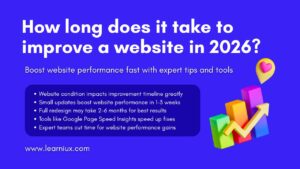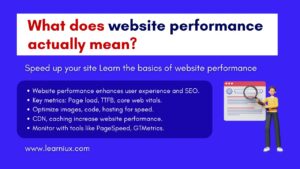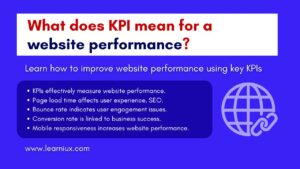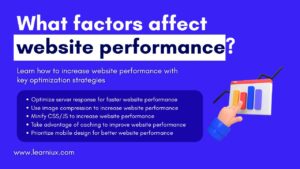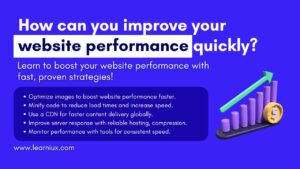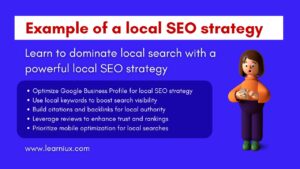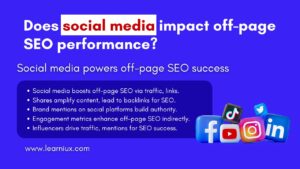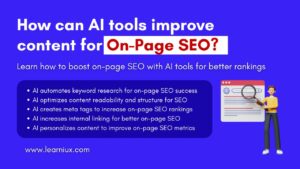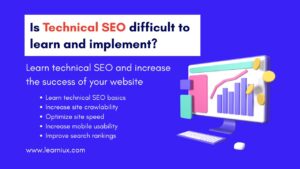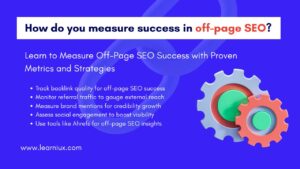Off-page SEO is a cornerstone of improving a website’s visibility and authority in search engine rankings. Unlike on-page SEO, which focuses on optimizing elements within a website such as content, meta tags, and structure, off-page SEO involves external factors that influence how search engines perceive a site’s credibility and relevance. These factors include backlinks, social media engagement, brand mentions, and online reputation. Using the best off-page SEO tools can significantly enhance these efforts by providing insights, automating tasks, and helping businesses stay competitive. This article explores the importance of off-page SEO, key features to look for in tools, the top tools available, and strategies to maximize their impact, as well as ensuring that content is optimized for search engines and user engagement.
The importance of off-page SEO lies in its ability to build a website’s authority and credibility. Search engines like Google consider backlinks as a vote of trust from other websites. The more high-quality, relevant backlinks a site has, the better its chances of ranking. However, off-page SEO goes beyond just backlinks. It includes social media signals, influencer collaborations, guest blogging, and managing online reputation. Manually handling these tasks can be time-consuming and complex, which is why choosing the best off-page SEO tool is important. These tools streamline processes like backlink analysis, competitor research, and outreach, enabling businesses to focus on strategy rather than repetitive tasks.
Choosing the right tool isn’t just about choosing the most popular tool; it’s about finding a solution that aligns with your website’s goals. The best off-page SEO tool should offer a combination of features like comprehensive backlink analysis, competitor tracking, domain authority metrics, and automation for outreach. For example, a tool that provides detailed insight into a website’s backlink profile can help identify high-quality link opportunities and potentially harmful links. Similarly, competitor analysis features allow users to discover strategies that have worked for others in their niche. Tools with social media integration or brand monitoring capabilities can further enhance off-page efforts by tracking mentions and engagement across platforms.
One excellent tool on the market is Ahrefs, which is recognized as a top choice for off-page SEO. Ahrefs excels at backlink analysis, offering a detailed view of a website’s link profile, including the number of referring domains, anchor text distribution, and domain authority. Its Site Explorer feature allows users to drill down into their own or competitors’ backlinks, identifying gaps and opportunities. For example, you can find websites that link to competitors but not to your site, making it easier to target those domains for link-building. Ahrefs also provides tools for keyword research and content analysis, but its strength in off-page SEO lies in its ability to uncover high-quality link potential. The best off-page SEO tools like Ahrefs save time by presenting actionable data in a user-friendly interface, making it suitable for both beginners and experienced professionals.
SEMrush is another powerful tool, known for its versatility in handling various aspects of SEO, including off-page optimization. SEMrush offers a robust backlink audit tool that identifies toxic links that could be hurting your rankings. It also provides a link-building tool that automates outreach, allowing users to connect with potential link partners efficiently. By analyzing competitors’ backlink profiles, SEMrush helps identify strategies that can be replicated or improved. For businesses looking to enhance their off-page SEO efforts, SEMrush’s integration with social media and content marketing tools makes it a comprehensive solution. Its ability to track brand mentions and monitor online reputation further solidifies its position as the best off-page SEO tool for websites looking to increase authority and traffic.
Moz Pro is another trusted name in the SEO industry, especially for its Domain Authority and Page Authority metrics, which are widely used to measure a website’s credibility. Moz Pro’s Link Explorer tool provides insight into backlinks, including the quality and quantity of referring domains. It also helps identify spammy links that could lead to search engine penalties. Moz Pro’s user-friendly dashboard and actionable recommendations make it a great choice for those new to off-page SEO, while its advanced features cater to seasoned marketers. The tool’s spam score feature is especially useful for maintaining a clean backlink profile, ensuring that your website stays in good standing with search engines. As the best off-page SEO tool, Moz Pro combines simplicity with powerful analytics, making it a reliable option for websites of all sizes.
Majestic SEO takes a unique approach, focusing heavily on backlink analysis. It offers unique metrics like Trust Flow and Citation Flow, which measure the quality and quantity of backlinks, respectively. These metrics help users assess the authority of a domain to link and prioritize link-building efforts. Majestic SEO’s historical index allows you to dig deep into a website’s link history, allowing users to track changes over time. This is especially useful for identifying missing backlinks or finding new opportunities. For websites that prioritize building high-quality backlinks, Majestic SEO stands out as the best off-page SEO tool due to its laser-focused approach to link intelligence. Its detailed reports and visualizations make it easy to understand and act on complex data effectively.
BuzzSumo takes a different approach by focusing on content discovery and social media analysis, both important components of off-page SEO. It allows users to identify trending content in their niche, analyze its performance, and find influencers who can expand their brand’s reach. By tracking social shares and engagement, BuzzSumo helps businesses understand what resonates with their audience. This information can guide content creation and link-building strategies, as high-performing content often attracts natural backlinks. BuzzSumo’s ability to monitor brand mentions across the web also makes it easy to convert unlinked mentions into valuable backlinks. For websites that rely on content-driven off-page SEO, BuzzSumo is one of the best off-page SEO tools that complement traditional link-building tools.
To maximize the impact of these tools, a structured approach is necessary. Start by auditing your website’s backlink profile using a tool like Ahrefs or SEMrush. Identify toxic links that could be hurting your rankings and disavow them if necessary. Next, conduct competitor research to find the link sources your competitors are using. Tools like Moz Pro and Majestic SEO can help you identify high-authority domains worth targeting. Once you’ve identified opportunities, use outreach automation features in tools like SEMrush or Pitchbox to connect with website owners for guest posting or link placement. Monitoring brand mentions is another important step – tools like BuzzSumo or Moz Pro can alert you to unlinked mentions, which you can then turn into backlinks by contacting the source. Finally, track your progress using metrics like domain authority, referral traffic, and keyword ranking to measure the effectiveness of your off-page SEO efforts.
A best-of-page SEO tool can make this process easier, but it’s important to avoid common pitfalls. A big mistake when building backlinks is to focus on quantity over quality. Low-quality or spammy links can lead to search engine penalties, which can negate your optimization efforts. Another mistake is ignoring social media signals, as engagement on platforms like Twitter, LinkedIn, or Instagram can indirectly impact SEO by driving traffic and increasing content. Ignoring competitors’ strategies is also a missed opportunity, analyzing what works for others in your industry can reveal gaps in your own approach. By strategically using the Best Off-Page SEO tool, you can avoid these mistakes and build a strong off-page SEO strategy.
Each of the tools mentioned (Ahrefs, SEMrush, Moz Pro, Majestic SEO, and BuzzSumo) offers unique strengths that address different aspects of off-page SEO. For example, Ahrefs and SEMrush are ideal for comprehensive backlink analysis and competitor research, while Moz Pro excels at providing actionable recommendations for beginners. Majestic SEO is perfect for those who want deep link intelligence, and BuzzSumo is a great tool for content-driven strategies. Depending on your website’s needs and budget, you can choose one tool or combine several tools for a holistic approach. Many of these tools offer free trials or limited free versions, allowing you to test out their features before committing.
Beyond the tools themselves, off-page SEO success depends on consistency and adaptability. Search engine algorithms are constantly evolving, and it’s important to stay up-to-date on best practices. For example, Google’s emphasis on E-A-T (Expertise, Authority, Trustworthiness) means that building backlinks from reputable, niche-related websites is more important than ever. Engaging with your audience on social media and cultivating relationships with influencers can bolster your off-page efforts. The best off-page SEO tools can provide the necessary data and automation, but combining these insights with a well-thought-out strategy will yield the best results.
Another aspect to consider is the role of guest blogging in off-page SEO. Writing high-quality guest posts for authoritative websites not only earns backlinks, but also exposes your brand to a new audience. Tools like SEMrush and BuzzSumo can help identify guest posting opportunities by analyzing competitor guest posts or finding popular blogs in your niche. Similarly, directory submissions and forum participation can contribute to off-page SEO if done selectively. However, avoid low-quality directories or spammy forums, as they can damage your site’s reputation. The best off-page SEO tool can guide you in identifying reputable platforms for these activities.
Local SEO is another area where off-page SEO plays a crucial role, especially for businesses that target specific geographic areas. Building citations on local directories, getting reviews on platforms like Google My Business, and interacting with local communities online can all help boost local search rankings. Tools like Moz Pro offer features tailored to local SEO, such as citation tracking and review management. By incorporating these strategies, businesses can enhance their off-page SEO efforts and attract more local customers.
The importance of monitoring and optimizing your strategy cannot be overstated. Regularly reviewing your backlink profile, tracking competitor activity, and analyzing social media performance will ensure that your off-page SEO remains effective. The best off-page SEO tools provide the data you need to make informed decisions, but it’s up to you to act on those insights. For example, if a tool like Ahrefs shows a sudden drop in referring domains, investigate the cause and take corrective action, such as reaching out to regain lost links. Similarly, if BuzzSumo highlights a piece of content that’s performing exceptionally well, use it to attract more backlinks or social shares.
Ultimately, off-page SEO is a dynamic and essential part of website optimization. By using the best off-page SEO tools, businesses can streamline their efforts, gain valuable insights, and stay ahead of the competition. Whether you choose Ahrefs for in-depth backlink analysis, SEMrush for automation, Moj Pro for user-friendly metrics, Majestic SEO for link intelligence, or BuzzSumo for content and social media strategies, the right tool can make a significant difference. Combine these tools with best practices like high-quality link-building, competitor research, and consistent monitoring to achieve sustainable growth in search rankings and organic traffic. With the right approach, off-page SEO can transform your website’s visibility and authority, leading to long-term success.






















